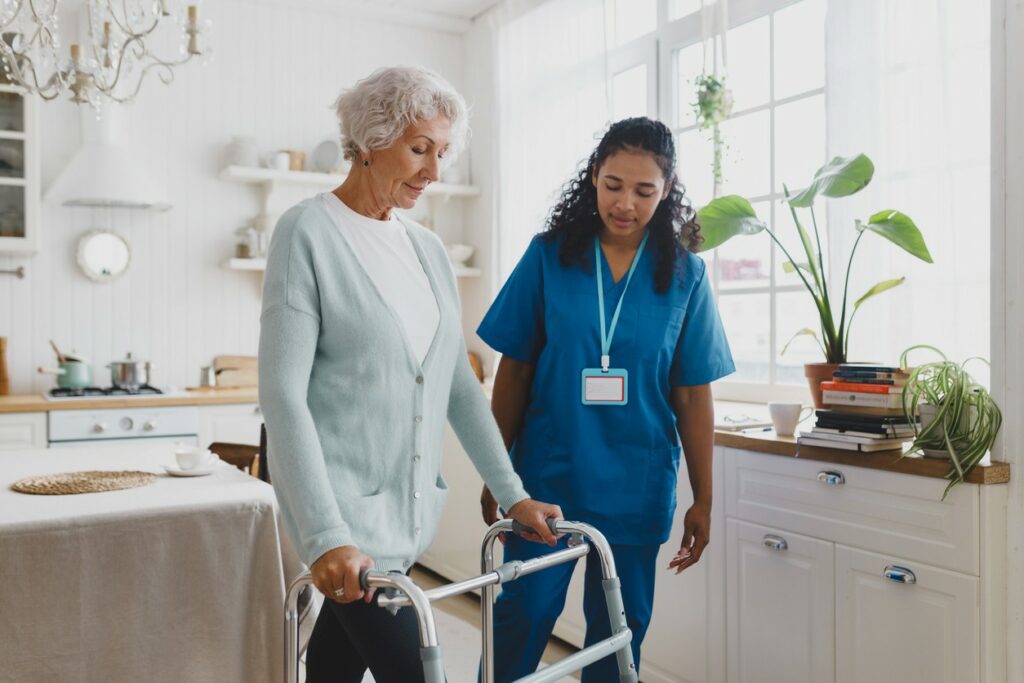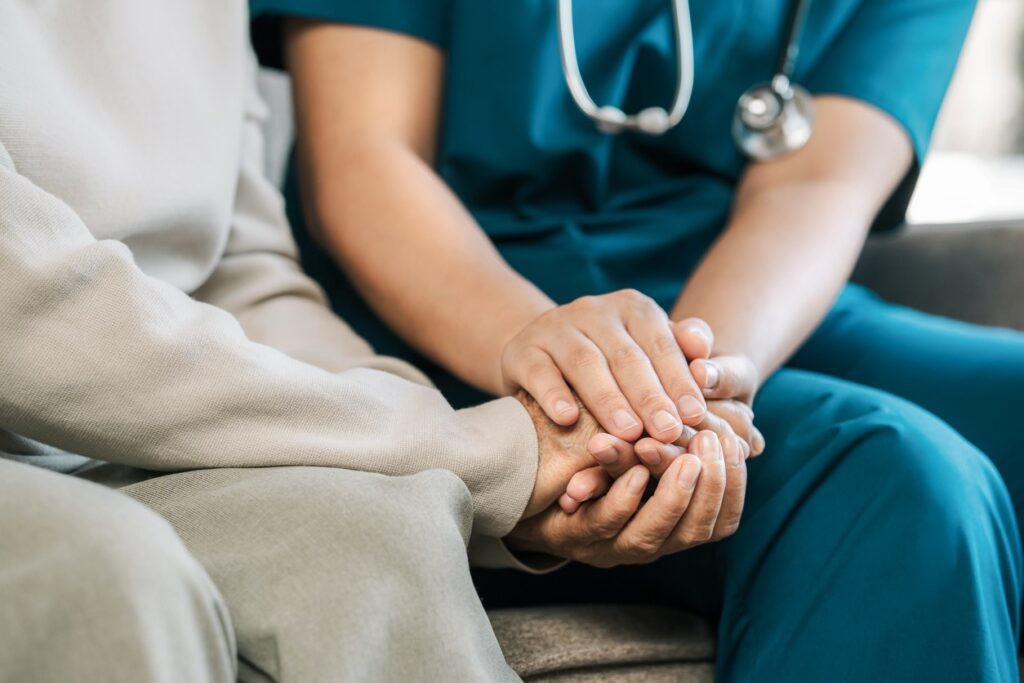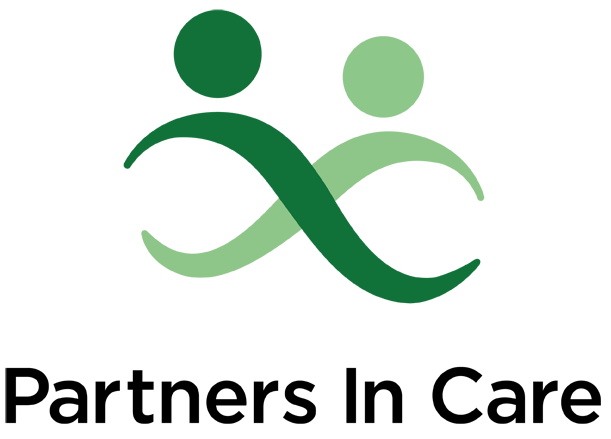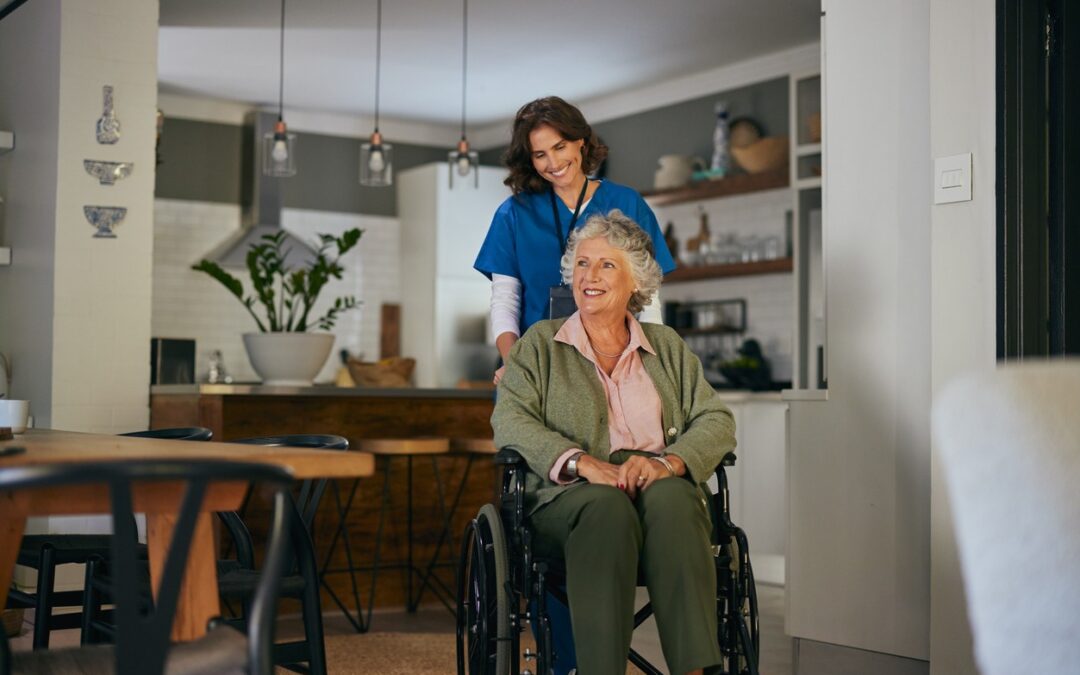Recovering at home after a hospital stay is a milestone many patients look forward to—an opportunity to rest in familiar surroundings, reconnect with loved ones, and begin the process of healing. Yet for many, this transition also comes with important questions and concerns: Will I be safe at home? Who will help me manage my medications? What if I need physical therapy or support with daily tasks?
At Partners In Care, we recognize the critical nature of this period. As Central Oregon’s only independent, non-hospital-based, Medicare-certified Home Health provider, we are dedicated to delivering high-quality, compassionate care directly to your doorstep. Whether you’re recovering from surgery, advanced illness, or managing a chronic disease, our Home Health team is here to help you return home safely—and stay there confidently.
Why Home Health Matters After a Hospital Stay
A hospital discharge does not mean your recovery is complete. In fact, studies show that the first few weeks at home can be the most vulnerable time for complications, readmissions, and caregiver stress. Home Health services help bridge that gap by providing skilled, clinical care in your home environment—where healing often happens best.
With the right support, patients can avoid unnecessary trips back to the hospital, recover faster, and regain the independence needed to return to the life they love.
What Our Home Health Services Provide
For 42 years, Partners In Care has supported Central Oregon residents with a full range of Home Health services, tailored to meet the unique needs of each patient. Our interdisciplinary medical and rehabilitation team works together with your health care provider to create a care plan focused on healing, safety, independence, and quality of life.

Here’s what our home care program includes:
Skilled Nursing
- Post-surgical care and wound management
- Medication education and management
- Chronic condition monitoring (e.g., heart failure, diabetes, COPD)
- IV therapy and catheter care
- Health education for patients and families
Therapy Services
- Physical therapy to rebuild strength, mobility, and balance
- Occupational therapy to help with daily tasks like dressing, bathing, and cooking
- Speech therapy for language, swallowing, or cognitive challenges
Home Health Aides
- Support with personal hygiene, grooming, and bathing
- Light housekeeping and meal assistance
- Reinforcement of therapy routines under professional guidance
Medical Social Work
- Emotional support during a challenging life phase
- Help navigating insurance, financial assistance, and advance care planning
- Referrals to community services and family support programs
Care Coordination
- Seamless communication between your doctors, therapists, nurses, and family
- Continuous updates to your care plan based on your goals and progress
- Ongoing assessment to adapt services as your needs change
Preparing for a Safe Return Home: A Guide for Patients & Caregivers

A successful recovery doesn’t start the day you arrive home—it begins before you even leave the hospital. Here are some key steps to make the transition smoother and safer:
1. Begin Planning Early
- Talk with your hospital case manager or physician about Home Health needs.
- Request a referral to Partners In Care before you’re discharged to ensure continuity of care.
- Ensure you understand your diagnosis, medications, and follow-up appointments.
2. Set Up a Safe and Comfortable Environment
- Remove clutter, loose rugs, and electrical cords to prevent falls.
- Arrange furniture to create clear walking paths.
- Install grab bars and non-slip mats in bathrooms.
- Prepare a recovery space on the first floor if mobility is limited.
- Have supplies like medication organizers, thermometers, and mobility aids ready.
3. Know What to Expect From Your Home Health Team
- Your first home visit typically occurs within 24 to 48 hours of discharge.
- A registered nurse will perform an assessment, review medications, and help create a personalized care plan.
- Based on your needs, therapists and aides will visit multiple times a week.
- Your care plan evolves as you recover, ensuring the right care at the right time.
4. Stay Engaged in Your Recovery
- Share your goals and preferences with your care team.
- Ask questions and voice concerns openly.
- Follow therapy routines and instructions for medications or wound care.
- Keep a journal or checklist to monitor symptoms and track progress.
5. Empower and Support Caregivers
- Caregivers are welcome to join visits and receive hands-on training.
- Learn safe techniques for mobility assistance, transfers, and medication management.
- Take advantage of respite and emotional support through our Transitions program and community partnerships.
Frequently Asked Questions (FAQs)
How do I know if I qualify for Home Health services?
You may qualify for Home Health services if you are recovering from a hospital stay, surgery, illness, or injury and require skilled medical care that can be provided safely in your home. This care must be ordered by a physician. Typically, Home Health is appropriate for individuals who are considered “homebound,” meaning leaving home requires considerable effort and assistance. Examples include patients who need wound care, physical or occupational therapy, medication management, or support with managing chronic conditions. If you’re unsure, talk to your doctor or hospital discharge planner—they can evaluate your eligibility and initiate a referral.
Is Home Health covered by insurance?
Yes, most Home Health services are covered by Medicare, Medicaid, and a wide range of private health insurance plans. Coverage usually includes skilled nursing, physical therapy, occupational therapy, speech therapy, home health aide visits, and medical social work. However, the extent of coverage can vary by plan. Our intake and billing team at Partners In Care will help verify your benefits, explain what is covered, and identify any out-of-pocket costs ahead of time. We’ll also assist with paperwork, authorizations, and coordinating with your insurance company to avoid unnecessary delays.
How soon will care begin after I return home?
At Partners In Care, we understand the importance of timely support. Once we receive a referral and all necessary documentation from your physician or hospital, we aim to begin Home Health services within 24 to 48 hours of discharge. Our scheduling team will contact you to arrange the first home visit, usually by a registered nurse who will assess your condition, review medications, and collaborate with your care team to create a customized care plan. We strive to minimize any gap in care to ensure a smooth and safe transition.
Can caregivers be involved in the care process?
Absolutely. In fact, we encourage and welcome caregiver involvement. Family members, friends, or other supporters play an essential role in the healing journey. Our team will provide education and hands-on training to caregivers—teaching them how to safely assist with transfers, manage medications, provide comfort, and respond to signs of concern. Caregivers can also attend therapy sessions to learn proper techniques and help reinforce exercises between visits. We’re here to support not only the patient, but also the people who love and care for them.
What services are not included in Partners In Care’s Home Health Care program?
While Partners In Care offers skilled nursing and rehabilitation services under its Home Health program, it does not provide regular homemaker or daily caregiving support. You may receive limited assistance from a Home Care Aide—such as help with bathing—up to 1–3 times per week, but not daily, and only when a skilled nursing or therapy need still exists. Once that skilled need ends and a patient is discharged from Home Health services, the aide services must also stop. If daily help with tasks like meal preparation or personal care is needed, Partners In Care can refer you to local community resources or organizations that provide non‑medical home care support.
What happens when Home Health care ends?
Home Health care typically concludes when skilled services are no longer medically necessary or when a patient has achieved their recovery goals. At that point, we don’t simply leave you on your own. We help coordinate a thoughtful transition to the next phase of care. This may include referrals to outpatient therapy, in-home care and caregiving services, community wellness programs, or, if appropriate, Palliative or Hospice care. Our goal is to ensure ongoing support and a clear plan moving forward, based on your specific needs and preferences. We also provide educational resources to help you maintain independence and wellness at home.
Why Choose Partners In Care?

When you choose Partners In Care, you’re choosing more than just a provider—you’re choosing a community partner dedicated to your health, dignity, and recovery.
- Locally Rooted: As a nonprofit based in Central Oregon, we are deeply invested in the health and wellbeing of our neighbors.
- Decades of Experience: Our team has provided Home Health care for over 35 years.
- Skilled & Compassionate Professionals: Our nurses, therapists, aides, and social workers work together with heart and purpose.
- Continuity Across Care: If your needs change, we offer seamless transitions to Palliative Care and Hospice services.
- Whole-Person Focus: We care for your body, mind, and spirit—because healing is about more than just medicine.
Your Journey to Recovery Begins at Home
The road to healing doesn’t end when you leave the hospital—it starts in the comfort and safety of your home, surrounded by care and compassion.
At Partners In Care, we are honored to walk alongside you and your family during this important chapter. If you or a loved one is preparing for a hospital discharge, talk to your provider about a referral to our Home Health team. Our Home Health service area includes Bend, Redmond, Prineville, La Pine, Sisters, Tumalo, Terrebonne, Madras, Crooked River Ranch, Christmas Valley and Sunriver.
Let us help you take the next step—stronger, safer, and supported. Contact our team to learn more.

